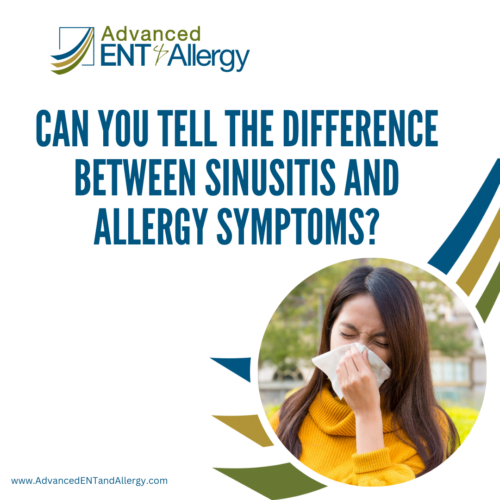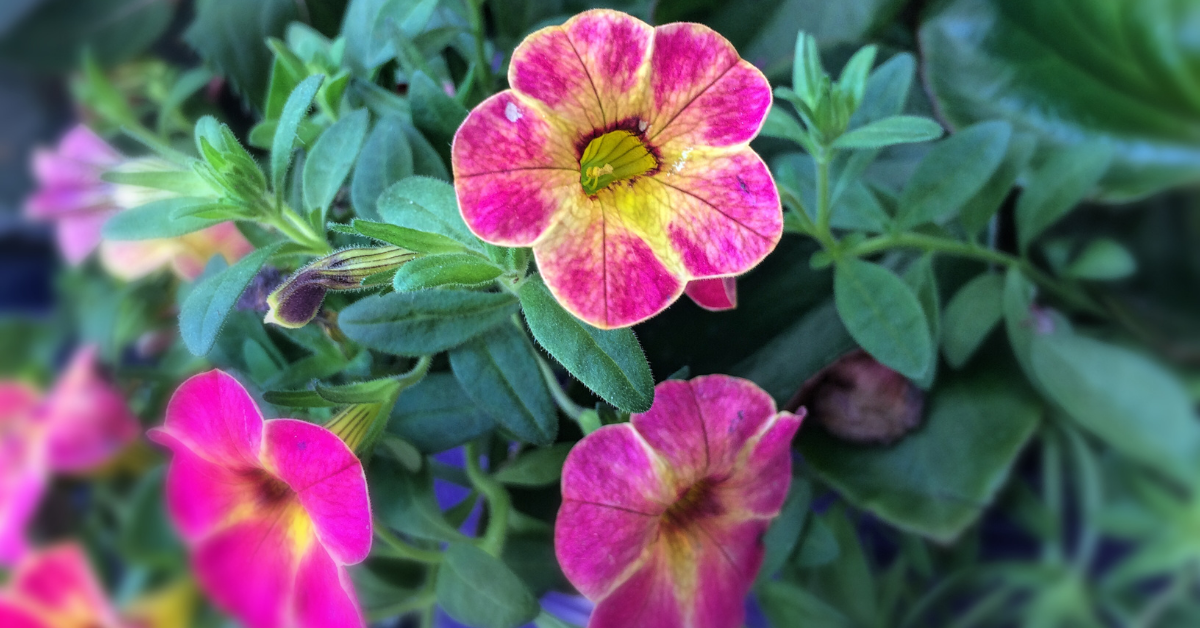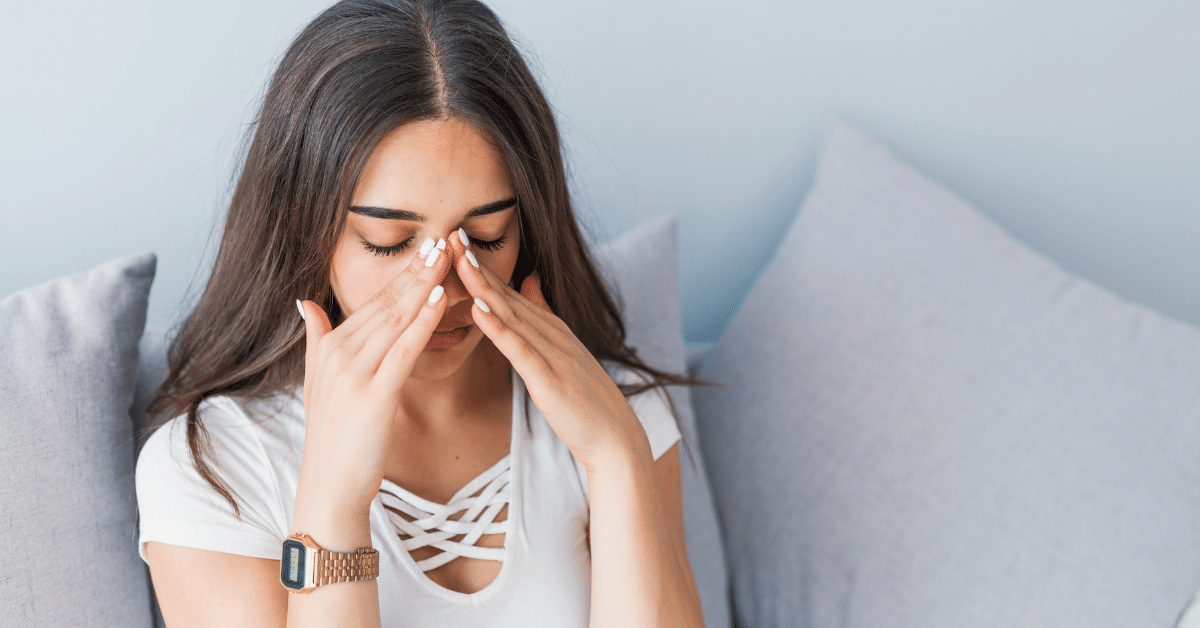
How can you know the difference between spring allergies and sinusitis? This is a question that has many people seeking answers from ENT and allergy doctors in Kentucky and Indiana. The truth is that distinguishing between severe allergies and sinus troubles can be difficult. What’s more, brushing off painful, disruptive sinus symptoms as “just allergies” can cause you to suffer needlessly without proper treatment and medications.
How Can You Tell the Difference Between Sinusitis and Allergies?
Yes, many symptoms of sinusitis and allergies overlap. However, the underlying causes of your symptoms are different with each issue. In the case of allergies, you’re experiencing congestion and runny nose because your nose and sinus passages are hard at work trying to flush out the allergens they are exposed to, causing irritation. This can be triggered by anything from pollen to pet dander.
With sinusitis, the trigger can be anything from allergies to colds. Sinusitis symptoms happen because your nose and sinuses can’t drain. After all, they are inflamed. When mucus cannot drain properly, an infection accompanied by pressure and pain forms. What can make differentiating between allergies and sinusitis even more difficult is that many people with allergies are likely to develop sinusitis simply because the swelling and stuffiness produced by allergen triggers can prevent mucus from draining.
Related:
The Difference Between Allergies And Covid-19 Symptoms
What Are the Symptoms of Allergies in the Spring?
Allergy symptoms are pretty classic for most people. You can expect a congested nose, runny nose, itchy eyes, and sneezing. If you have nighttime allergies, you may experience watery eyes in the morning. Some people even experience wheezing. Of course, allergies can happen at any time of the year, even though spring is the prime allergy season for many people.
What is hay fever? Some people develop a severe form of allergic rhinitis traditionally known as ‘hay fever’. It does not mean that you are allergic to hay. With severe allergic rhinitis (also known as hay fever), the body’s immune system overreacts to an environmental trigger. Common triggers include:
- Mold spores.
- Tree pollen.
- Grass.
- Weeds.
- Dust mites.
- Pet dander.
- Cockroaches.
- Foods.
While you may become fatigued from severe allergic rhinitis, the tiredness is only caused by the fact that trying to breathe with congested nasal passages can tire you out. We do not sleep as well when we cannot breathe through our nose. There is one important thing to know about allergic rhinitis. It will never cause an actual fever. If you are experiencing fever to go along with your allergy symptoms, this is a sign that you’re dealing with sinusitis.
What Are the Symptoms of Sinusitis?
The symptoms of sinusitis are typically more severe than classic allergy symptoms. Yes, you are likely to have that telltale stuffy, runny nose that accompanies allergic rhinitis. However, most people with sinusitis end up feeling much worse. Here’s a look at the clues that it’s sinusitis instead of allergies:
- Thick, dark mucus.
- Headache.
- Tooth pain.
- Post-nasal drip.
- Bad breath.
- Cough.
- Sore throat.
- Fatigue.
- Light fever.
- A painful, swollen sensation over the forehead, eyes, and cheeks.
Duration of symptoms can also indicate whether what you’re experiencing is allergies or sinusitis. Allergy symptoms will only last while you’re in contact with your allergy trigger. By contrast, sinusitis symptoms will continue to linger even after you’ve gotten over a cold. When sinusitis lasts for less than four weeks, this is what’s known as a case of acute sinusitis. However, it’s possible to experience chronic sinusitis lasting three months or more.
Why Do My Allergies Get Worse at Night?
If you’re pretty confident that you have allergies instead of sinusitis, you may be wondering why your allergies flare up at night. This is a sign that your trigger allergen is an indoor allergen. One of the most common causes of nighttime allergies is the presence of dust mites. These are tiny bugs that feed on human skin cells. Commonly found in mattresses and bedding, these harmless mites trigger severe allergies in some people. It’s also possible that pet dander in your home is triggering your allergies. Indoor mold is another common allergy trigger. How can I lessen night allergies? Doing a big “spring cleaning” of your home to eliminate any allergens hiding in crevices, corners, and fabrics can be essential for creating a clean slate for your allergy symptoms.
Some people claim that allergies are worse at night because pollen levels are higher at night. This is a myth. However, it is possible that your allergies are worse at night because you’ve dragged pollen in from the outside in your clothing or hair. If you spend a significant amount of time outdoors in the spring and summer, consider taking a shower before bed. You should also wash your outdoor clothing immediately.
What Is the Best Way to Get Sinus Headache Relief?
For many people, a sinus headache is the most debilitating symptom of all. There are some things people can do at home to get immediate relief. The first is to simply apply a warm compress to the face. Trying a decongestant may help you reduce swelling enough to get the mucus to drain. Saline (salt water) nasal sprays and rinses can also be helpful. Lastly, try using a vaporizer or steamer to see if warm, moist air can help to relieve some of your congestion. A number of over-the-counter as well as prescription sprays and antibiotics as well as oral steroids may also help to provide more direct relief for severe sinus headaches.
How Can You Get Rid of Allergy Symptoms Quickly?
People suffering from suspected allergies often want tips on the best allergy medication choices. Many want to know specifically about the best antihistamine for allergic rhinitis. The truth is that antihistamines, nasal sprays, steroids, and decongestants can provide some temporary relief of symptoms. However, they don’t address the underlying immune problem. Allergy testing can often be helpful for pinpointing the allergy trigger or triggers and helpful for developing a therapeutic plan for resolving the allergy.
There’s one last thing that allergies and sinusitis have in common. Both can be treated by an ENT and allergy specialist. If you’re suffering from stuffiness and pressure, it’s time to visit the specialists at the Sinus Center at Advanced ENT and Allergy. We offer eight convenient locations throughout Louisville, Central Kentucky, and Southern Indiana. Make your appointment today!




